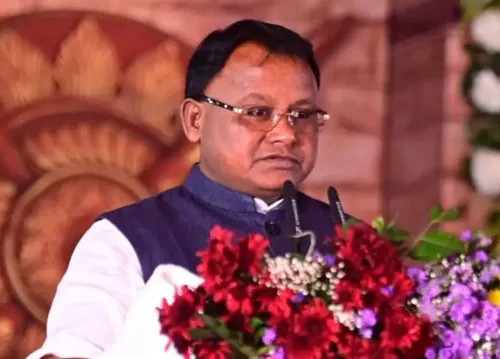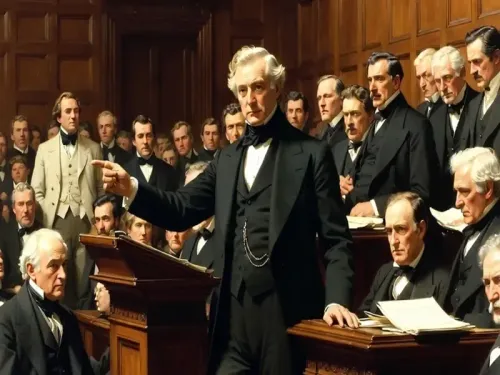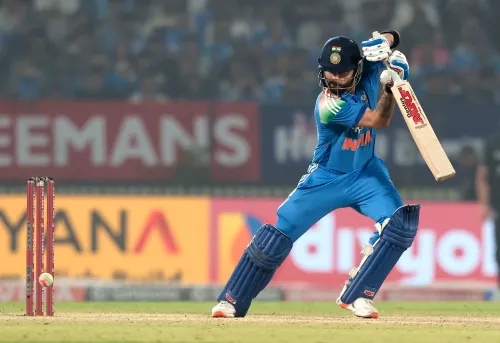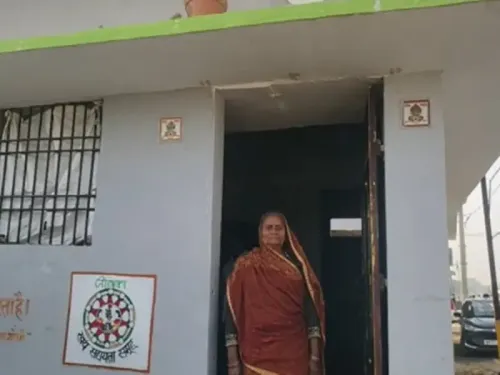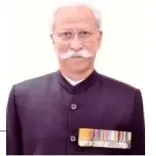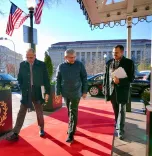How is PM Modi Addressing Governance Over 'Jungle Raj' in Bihar?

Synopsis
Key Takeaways
- PM Modi emphasizes empathetic governance.
- Critique of Lalu Prasad Yadav's leadership.
- Highlighting Bihar's transformation through government initiatives.
- The importance of emotional commitment over election strategies.
- Celebration of Ramnath Goenka's legacy in journalism.
New Delhi, Nov 17 (NationPress) During a passionate discourse at the Sixth Ramnath Goenka Lecture, hosted by the Express Group, Prime Minister Narendra Modi focused on Bihar's chaotic history and its hopeful trajectory. He expressed regret over the missed opportunities under leaders such as Lalu Prasad Yadav, while advocating for governance that prioritizes compassion and development.
This address, framed within a ceremony celebrating journalistic excellence, was a blend of personal stories and sharp political observations, highlighting that genuine leadership is rooted in empathy rather than constant campaigning.
"Lalu Yadav could have significantly impacted Bihar if he had chosen to," PM Modi stated. "Instead, he allowed 'jungle raj' to prevail."
The mention of the notorious lawless period during Yadav's governance in the 1990s resonated with the audience, many of whom recalled the state’s decline marked by kidnappings, caste violence, and deteriorating infrastructure that affected countless lives.
In contrast, PM Modi acknowledged the ongoing progress under the NDA administration in Bihar, attributing improvements in infrastructure, education, and women's empowerment to their leadership.
"Regardless of whether there are distinct governments at the state or central level, the focus should be on competing in development," he emphasized, promoting a federal spirit where healthy competition drives advancement rather than discord.
The Prime Minister's remarks carried significant weight following the BJP's recent electoral victories in Bihar, where a high voter turnout—especially from women—reflected a desire for stability. However, PM Modi quickly shifted from celebrating wins to a gentle admonition of his supporters.
"Following our success in Bihar, some media outlets have claimed that Modi and the BJP are in perpetual election mode," he quipped. "They fail to realize we need to be in 'emotional mode', not just election mode."
This was a rare moment of introspection, encouraging his party to convert post-election enthusiasm into genuine service rather than endless campaigning.
In a time of divisive rhetoric, PM Modi's appeal resonated as a call for authenticity—urging governments to act as caregivers rather than mere calculators. Central to his message was the unwavering effort to "ease the struggles of the underprivileged and meet the aspirations of the middle class."
He underscored Bihar’s transformation through initiatives like PM Awas Yojana and Ujjwala, where millions have moved beyond the clutches of poverty.
"We've witnessed this change in Bihar," PM Modi remarked, vividly describing villages now illuminated by solar lights and connected by expressways, representing a stark contrast to the shadows of 'jungle raj'.
PM Modi shared a touching memory from his early political journey, humanizing the experience of grassroots activism.
Reflecting on the 1991 Lok Sabha elections, he recalled Ramnath Goenka's trusted associate Nanaji Deshmukh, mentioning how "Ramnath ji" had once contested from Vidisha. He was advised by Nanaji to simply file the nomination papers and obtain the certificate before leaving, PM Modi recounted.
"This reflects the dedication of countless BJP workers. Millions have nurtured the BJP's foundation," PM Modi stated, acknowledging the party's steadfast supporters who have sown the seeds of transformation now flourishing across the nation.
The evening event, held at a luxurious venue in the capital, celebrated the legacy of Ramnath Goenka, a stalwart of fearless journalism—one who stood against the Emergency and advocated for truth.
PM Modi lauded the awards as a "platform for ideas that influence our national conversation," aligning his vision of compassionate governance with Goenka's dedication to integrity.


